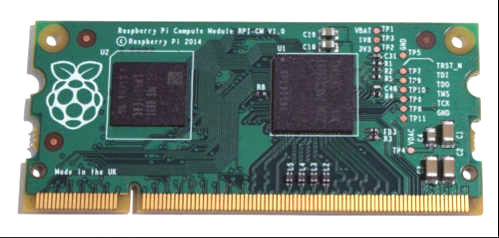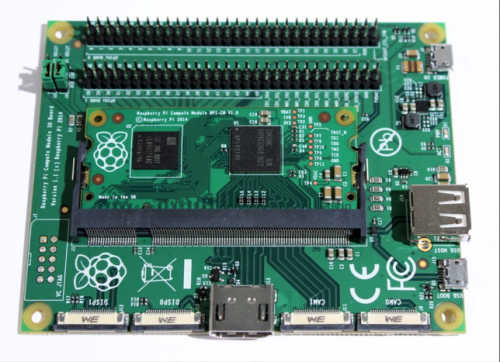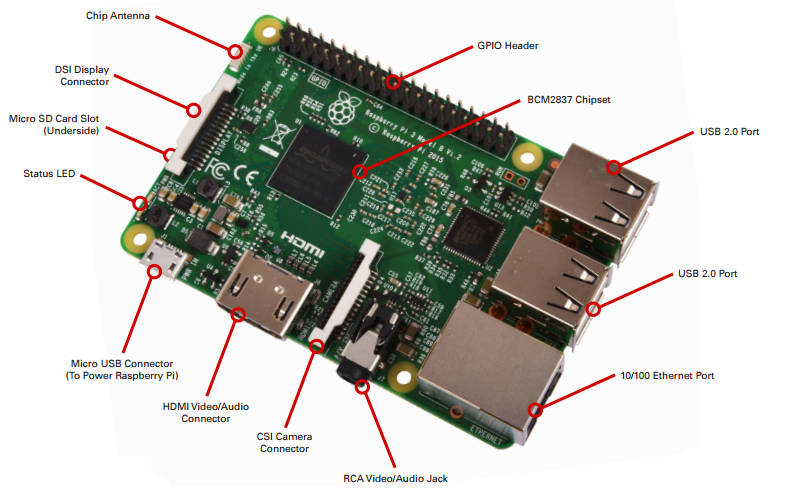| Raspberry Pi Compute Module To Be Upgraded To 3 |
| Written by Harry Fairhead | |||
| Monday, 18 July 2016 | |||
|
The Raspberry Pi Compute Module is aimed at the "professional" user and is a traditional embedded system, but it is looking a little low on specification. Now we have the news that it is going to be upgraded to the Pi 3's more capable design. The first thing to say is that this news is based on a report of an IDG News Service interview with Eben Upton, founder of the Raspberry Pi Foundation and CEO of Raspberry Pi (Trading) Ltd that has been reported by a number of other news services. All of the reports seem to originate in a news item in PC World and there is no trace of the actual interview. However, it all seems very reasonble.
The current Compute Module The Raspberry Pi Compute Module is a SODIMM form package that needs a development kit to work with and some custom hardware to be created if you are actually going to incorporate it into a product. The idea is that the DIMM format allows the device to slot into a mainboard that provides additional interfaces to the outside world - think dishwasher or smart refrigerator. If you are developing an embedded industrial system then the compute module makes sense as a choice, if only because you don't have to admit to using the same Raspberry Pi hardware that every hobby developer is using!
The existing development board The real question is how successful the module has been. It was introduced two years ago and hasn't been updated, even though the main Pi modules have. The most recent update to the Pi 3 makes the original hardware on the current Pi Compute module look particularly under powered.
The Pi 3 has lots of extras that won't make it into the Compute Module
This is about to change as Eben Upton remarked that a new compute module should be available in a few months and it will be based on the hardware used in the Pi 3. The bad news is that it almost certainly won't have WiFi, which is good for power consumption but bad for versatility. As well as working with the usual Linux based operating systems, it will also support the very reduced Windows 10 that works on the Pi 3. It will be interesting to see if the new Compute Module is worth considering in the light of the Pi Zero. This is about the same size as the compute module and, while not up to the speed of the Pi 3, is as fast as a Pi 2, albeit with only one core. For many embedded applications it is very attractive, if only because of its very low price for the performance delivered. The Pi Zero also doesn't have WiFi, but it doesn't need a development kit and special hardware to get a prototype off the ground. There is no news as to the expected cost of the new Compute Module and no information on whether or not it will work with the existing development kit.
More InformationA smaller version of Raspberry Pi 3 is coming soon Related ArticlesRaspberry Pi 3 Confirmed - 64-bit For $35 Where Are The Raspberry Pi Zeros? Windows 10 Raspberry Pi Starter Kit
To be informed about new articles on I Programmer, sign up for our weekly newsletter, subscribe to the RSS feed and follow us on, Twitter, Facebook, Google+ or Linkedin.
Comments
or email your comment to: comments@i-programmer.info |
|||
| Last Updated ( Monday, 18 July 2016 ) |




